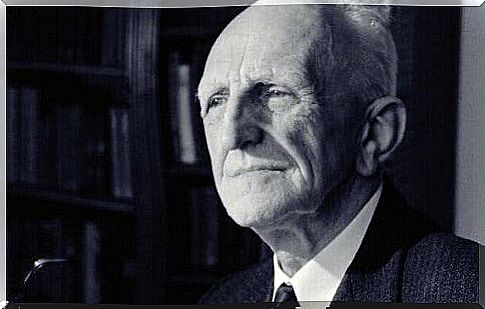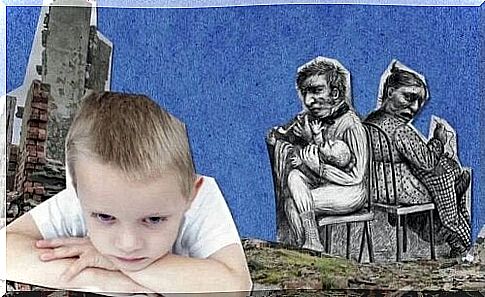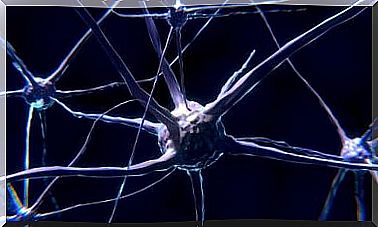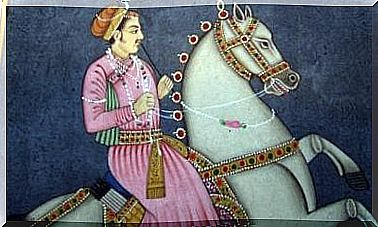Donald Winnicott And His Theory Of The False Self

Donald Winnicott was a famous English psychiatrist, psychoanalyst and pediatrician who developed an interesting approach to human personality. Due to his education as a pediatrician, he focused his thoughts, reflections and theories on children. And especially about the relationship between mother and child and the consequences of this relationship. Apart from this, he also developed the interesting theory of the false self .
He worked with the famous psychoanalyst Melanie Klein and even treated one of her own children with her. He was also chairman of the British Psychoanalytical Society and a very famous thinker in the twentieth century.
During his life, he also developed ideas about “mother good enough” and “mother devoted”. In addition, his concept of “transition object” is something that many schools in psychology still use today.
The relationship between mother and child, according to Winnicott
In line with other psychoanalysts , Winnicott believes that the mother and the child form a unit during the first year of life. You can not talk about the child as a unit that is separate from its mother, he says. The two form an indivisible mental unit.

Winnicott believes that the mother is the first “context” that a human being has. She is the absolute basis for its subsequent development. Therefore, and especially during the first months of life, the mother is the child’s universe. The mother is practically synonymous with the world.
This shows Winnicott’s concept of “mother good enough”. She provides the necessary care for the child, spontaneously and sincerely. She is willing to be everything the child needs. As a mother, she is not perfect, but she does not neglect the child and she does not overprotect it either. This helps to create the true self.
Similarly, a “devoted mother” is one who is too attached to or overprotective of her child. She cannot respond adequately to the child’s spontaneous needs. This gives rise to what Winnicott calls the false self.
Winnicott and the false self
The mother is like a mirror for the child. The little one sees himself when his mother looks at him. The child learns to identify with humanity through her. Little by little, the child is separated from its mother and she has to adapt to this change. The child has spontaneous gestures that are part of its development as an individual. If the mother welcomes them, the child experiences the feeling of being real. If she does not, a feeling of unreality is created.

When this interaction between the mother and her children fails, something that Winnicott calls “experiences of existential discontinuity” occurs. In other words, this means that there has been a radical disruption in the child’s spontaneous development. This is essentially what gives rise to the false self.
Winnicott points out that in these circumstances the child becomes “his own mother.” This means that it begins to hide itself to protect itself. The child learns to only show what its mother wants to see. The child becomes something other than what it really is.
The effects of the false self
There are different levels of “falsehood” within ourselves. According to Winnicott, at the most basic level, it is those who have a polite attitude and follow all the rules and regulations. The trait to its extreme is schizophrenia, a mental state in which the person is separated from himself, to the point where his real self disappears.
For Winnicott, in all serious mental illnesses, a false self dominates. In these cases, the person uses all the resources available to build and maintain the false self. The purpose of this is for the person to be able to face a world that they perceive as unpredictable or unreliable.
Winnicott says that most of the efforts of a person with a very strong false self are focused on the intellectualization of reality. This means that they try to turn reality into something that can be reasoned out, but without feelings, love or creative actions. When such an intellectualization succeeds, the individual perceives himself as normal. But she does not experience what she is living out as something that is truly hers, but rather as something foreign.

This person can never feel happy about their successes and does not feel valuable even though others may see her value. When it comes to the person, it is her false self that has achieved it or her false self that is valued. This only creates a breakdown within herself and with the world. Her true self is captured by, fantasizes about and experiences a despair that she can never understand within herself.









